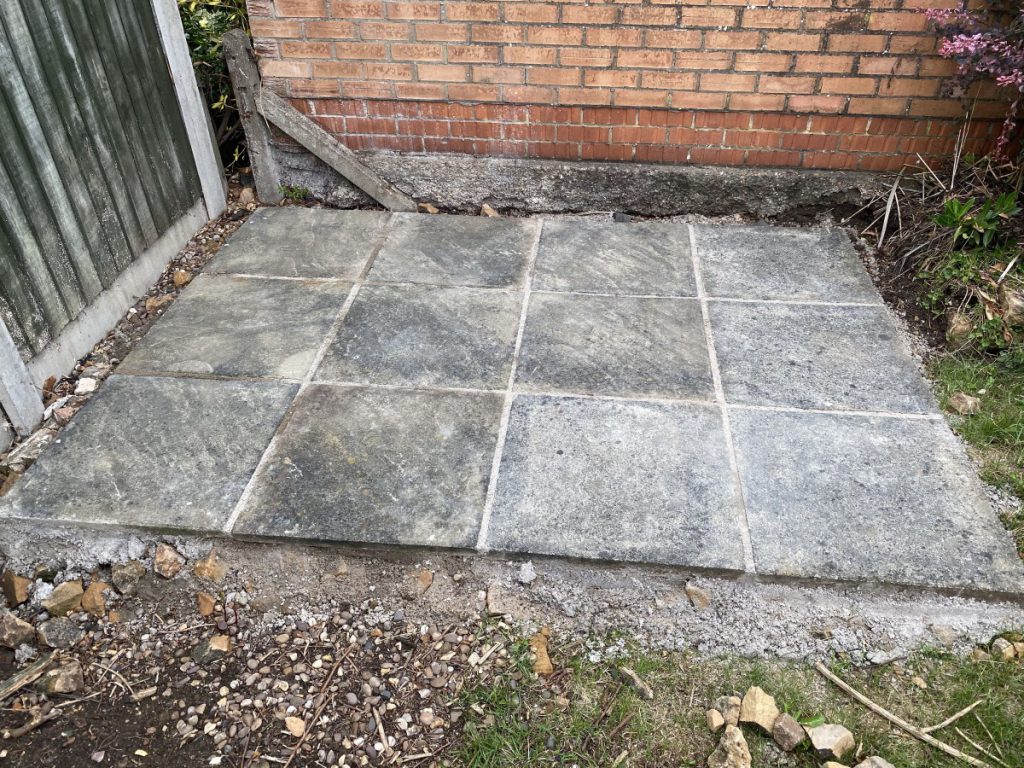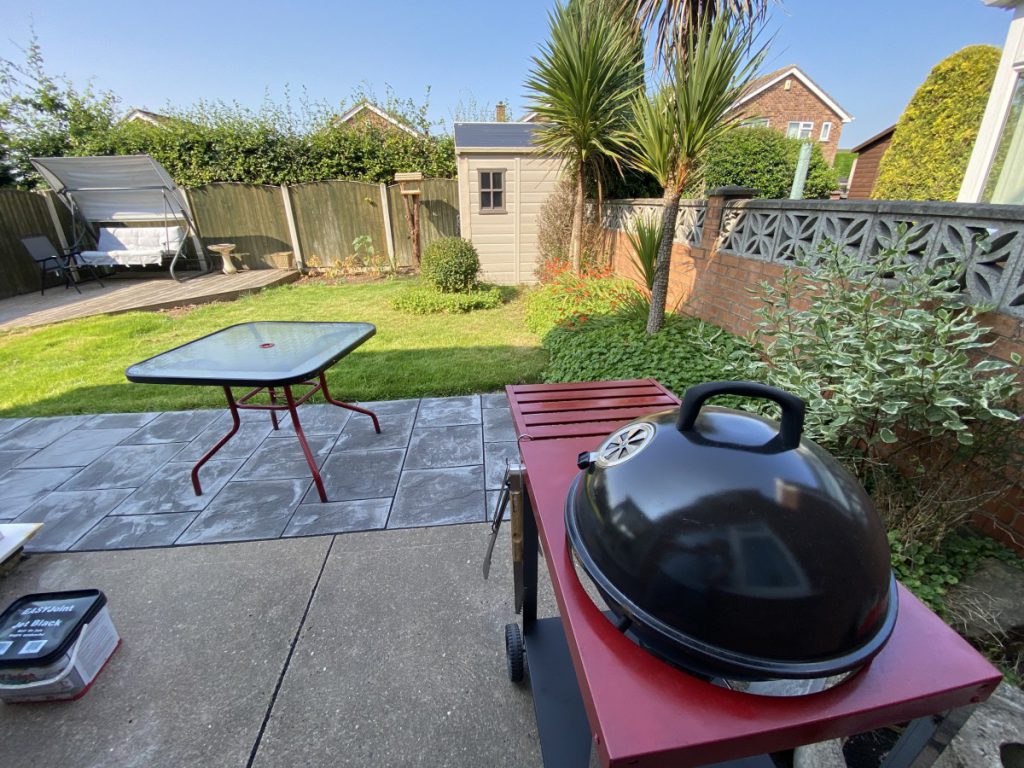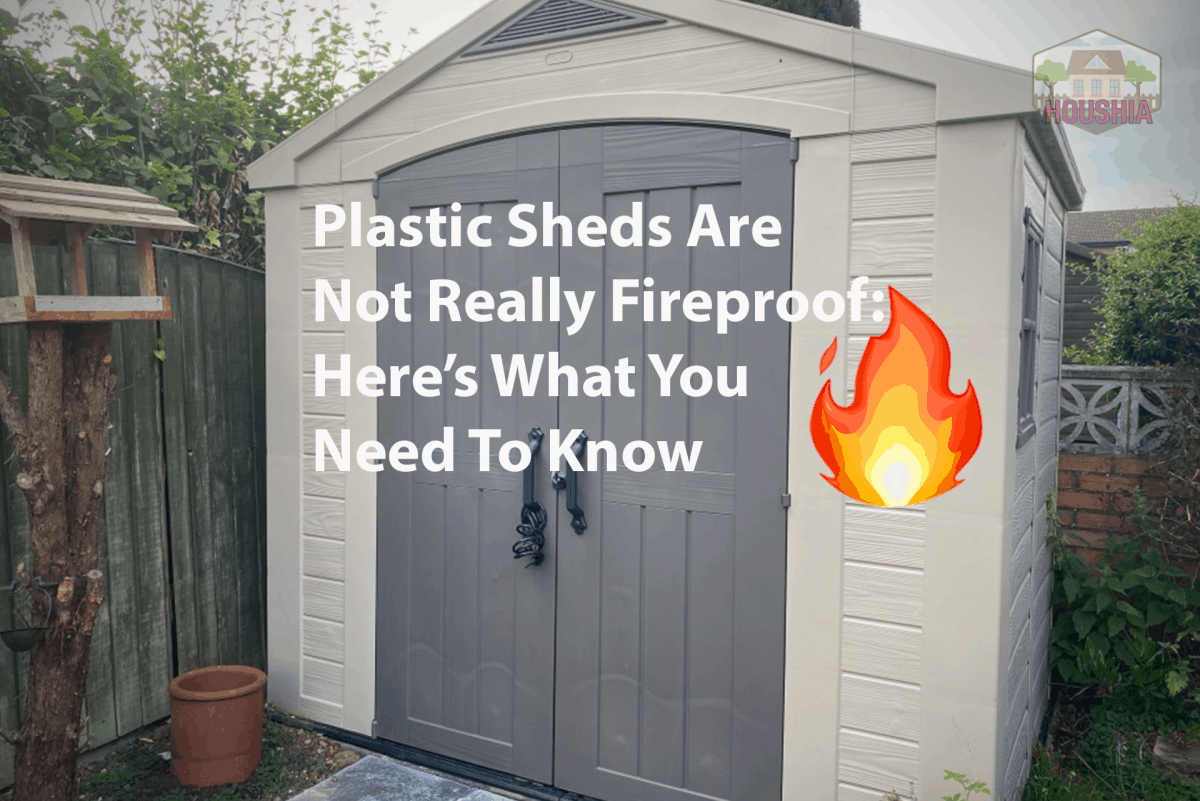Plastic sheds are one of the best garden storage choices, because of how lightweight and easy to assemble they are. But how safe are they if the worst happens and they catch fire?
In this article I’ll answer this question from the perspective of someone who owns a plastic shed and wanted to know the answer to this question but couldn’t find a good answer on the internet.
Plastic sheds are not fireproof and will still catch fire if you negligently expose it to uncontrolled fire. So despite being not as combustible as wooden sheds, do not set barbecues or fire-pits near plastic sheds. They may be 100% resistant to stain, rot, and rust but not to fire.
It is important to know that even though plastic sheds are one of the best types of garden sheds out there, they have their own set of drawbacks. The greatest misconception on plastic sheds is that they are thought to be fireproof.
This is false, and depending on such information could likely get you into trouble. Plastic can still catch fire! With this out of the way, it is time we discuss the things we should avoid to prevent plastic sheds from catching fire.
Plastic Sheds Are Not Fireproof
Plastic Sheds are not fireproof because its material composition can still catch fire and burn down. Plastic sheds can be either made up of vinyl, resin, or polyurethane. All three types of plastic sheds can still be burned down, although the vinyl types tend to be the better of three. Vinyl may not be fireproof, but they are definitely fire retardant, which means they could slow down the burning process.
Aside from being fire retardant, vinyl materials are generally heat resistant. Being heat resistant is different from being fireproof. A heat resistant material is anything that could withstand exposure from heat, typically referring to the heat of the sun, without melting or cracking—on the other hand, being fireproof means that a material cannot burn or catch fire even with direct contact to fire.
Plastic Sheds Are However Difficult To Burn
Despite not being fire resistant, plastic sheds are still great to have, whether as a garden shed or indoor shed. This is because wooden sheds are way easy to burn down; in fact, no matter how expensive a wooden shed is, it can still catch fire and burn down in minutes.
Plastic sheds, especially the vinyl-made ones, are made up of PVC or polymerizing vinyl chloride. The chlorine composition of the vinyl material slows down the combustion process, giving you ample time to put down the fire!
So unless you intentionally expose your plastic sheds to an active fire source for substantial periods of time, your plastic shed will not easily burn down. The only type of shed that could be considered legit fireproof is the metal/steel type sheds. While the metal/steel type sheds are great for being fireproof and highly secure, they are edged by the plastic sheds on some other aspects.
A Burning Plastic Shed Will Be Easily Detectable
Aside from being extremely difficult to burn, or even catch fire in the first place, a burning plastic shed will be easily detectable. A blazing plastic shed will definitely produce dark smoke, like any other plastic material being burned down. Even more distinguishable, in the unfortunate event that your plastic shed does catch fire, you can easily smell it. Burning plastic produces an awful smell.
Due to its distinct burning smell and distinguishable dark smoke, a burning plastic shed can easily be saved. In the first place, wooden sheds can burn down in minutes, giving you little to no time to save it, including the storage inside. Sometimes, you will not even notice your wooden sheds burning. Due to this reason, although not fireproof, a plastic shed is way better than an expensive wooden shed that could easily burn down.
Tips To Avoid Fire From Burning Your Plastic Sheds
So now that we have established the fact that plastic sheds can catch fire, albeit, at a slower pace than wooden sheds, we need to set up parameters to avoid fire from burning up in the first place. By having preventive measures, you minimize the possibility of hazardous fire from being anywhere near the shed.
The expense of setting up these precautionary measures is nothing compared to the losses you would incur if the shed burns down. Start with listing down all the possible scenarios a fire could break out in the shed, then proceed to make countermeasures for each scenario.

Secure The Wirings And Lighting Systems Inside The Shed
Most home structures, typically houses and barns, are accidentally burned down by faulty wirings and lighting systems. Short circuits from wirings are one of the five (5) major causes of house fires, according to the National Fire Protection Association (NFPA).
In the same vein, lights and wirings can cause a spark that may end up burning your shed, even a difficult to burn plastic shed. The spark may not cause the shed itself to catch fire, initially, but it may cause the storage items to catch fire and ultimately include the shed.
Always watch out for those non-insulated or poorly insulated wires, especially when you have storage that could attract rats and vermins. Rats could easily gnaw wires’ insulation, which could easily cause fire whenever it comes into contact with other uninsulated wires.
Avoid using incandescent bulbs because they have been known to overheat and explode. Most importantly, whenever you access the garden shed, always check for unplugged wires, lights, and forgotten lamps.
Organize Your Storage Properly
Always organize your storage properly, especially when you have both combustible solids and flammable liquids. Combustible solids that are typically found in your shed include woods cuts, paper, wooden furniture. Flammable liquids that are usually found in your shed include gasoline, kerosene, and diesel. Always isolate these items from each other to minimize flammable liquids’ threat, causing these combustible solids to burn.
Always have a fire extinguisher ready at or near the shed. This will allow you to react and fight the fire immediately, preferably when the fire is still manageable. Try to keep an updated checklist on what items are currently stored in your shed. This may seem trivial, but it really helps you to not forget about flammable items stored in the shed, especially gasoline.
n.b. If you’re curious about painting your plastic shed, we have an entire article that deep dives in to exactly how you have give your shed a cool paint job.
Avoid Having Barbecue Sessions Or Any Other Friendly Fire Near The Plastic Sheds

This one is about discipline and diligence. Your plastic shed may not easily catch fire, but your stored items can. So avoid having barbecue sessions or any other friendly fire near the plastic shed. For example, most plastic sheds, like garden sheds, are positioned in places where barbecue sessions happen. So always have the presence of mind to keep a safe distance from the shed.
If you have the shed near the garden or backyard, always keep the immediate surroundings of the shed free from grasses. Instead, have the surrounding one meter of the shed purely dirt or soil. This is to prevent fires from crawling into your shed, especially in places where forest fires are prevalent. Lastly, teach your kids not to play fire near or inside the sheds because they may not be aware of the dangers of playing with fire.
Have Fire Emergency Measures Set Up
Suppose you have the time and resources, set up water sprinklers near the shed. If possible, have them turn on automatically upon detection of smoke, or perhaps on a timer. It would also be greatly advantageous if you have a water hose near the shed, like a garden hose, for example. Nowadays, smoke detectors and gas leak detectors are very affordable, so having one ready to alarm in the shed will be really helpful.
Plastic Sheds Are Still The Popular Choice Nowadays Despite Not Being Fireproof
Despite not being fireproof, many people still prefer to have plastic sheds instead of their wooden or metal counterparts. In the first place, wooden sheds are slowly becoming less popular because they are the easiest to burn. Plastic sheds also last longer than wooden sheds and are also way cheaper than expensive wood. As for metal sheds, people have complained about its flexibility issues, aesthetic designs, and longevity.
Speaking of longevity, plastic sheds are the most long-lasting of the three. Plastic sheds are rust-resistant, which gives it an advantage over metal sheds that rust over time. Plastic sheds are also stain-resistant and rot-resistant, which is an advantage over wooden sheds, which are prone to rotting over time. Lastly, plastic sheds are so convenient because they are lightweight and maintenance-free, which means you won’t need to paint it for protection.
Plastic Sheds Are Rust, Stain, And Rot Resistant
Plastic sheds are rust, stain, and rot-resistant. Plastic will not rust and stain because it does not have iron in its material composition. The element that makes steel rust is the iron (Fe) inside it. There is no iron element present in plastic sheds that could be exposed to oxygen and develop rust.
Plastic sheds also do not rot because it is not made up of organic materials. The reason why wood rots over time is because of the presence of wood-eating fungus. These wood eating fungi thrive over wood, especially when moisture develops inside the wood. In plastics, there are no fungi that could develop and eat the material.
So in terms of longevity, plastic sheds will normally outlast its wooden and metal counterparts. On the other hand, plastic sheds are weaker in terms of physical resistance. A thief could easily hammer down your plastic shed. However, it’s not like you store extremely valuable items in your shed.
Plastic Sheds Are The Most Convenient
Plastic sheds do not need paint to protect themselves from the harsh weather elements. In fact, it is unwise to paint vinyl plastic sheds because the paint will not be able to properly adhere to its surface. Aside from not needing paint for protection, plastic sheds are extremely convenient because they are lightweight and are therefore easy to transfer. Also, plastic sheds are so easy to assemble and disassemble.
Plastic sheds are also not as expensive as wooden sheds are. A plastic shed will typically cost you around $250 to $500. On the other hand, a wooden shed will typically cost you around $2,000, while a metal shed will cost you $300, at the minimum. Clearly, plastic sheds are extremely convenient to have because they are lightweight, maintenance-free, and affordable!
Other Pros And Cons Of Plastic Sheds Aside From Being Difficult To Burn
Pros of Plastic Sheds
There are other advantages of having plastic sheds, aside from being a fire retardant, long-lasting, affordable, lightweight, and maintenance-free. Plastic sheds are waterproof and weatherproof. This means that rain and snow cannot easily penetrate the plastic shed; in fact, crevices and cracks are more common in wooden sheds. Vinyl is extremely resistant to the weather changes, so it can withstand both the cold winter and the hot summer!
Plastic sheds are also quite aesthetically pleasing. Back then, plastic structures are quite comical to look at, but now that technology and design have drastically improved, plastic sheds are some of the most visually appealing sheds out there. Although you cannot repaint your plastic sheds, that is hardly a problem since plastic sheds already come in painted with whatever color you want. Besides, the convenience of not having to worry about paint maintenance has enticed more and more people to buy plastic sheds.
Cons of Plastic Sheds
Some disadvantages also come with having plastic sheds, understandably. The most obvious disadvantage is its weaker security. Plastic sheds are not as strong as wood and metal when it comes to physical attacks. It may outlast them through time, but when it comes to physical attacks, plastic sheds just don’t do good.
Aside from being easily demolished, plastic sheds are not a good place to stay in for long periods of time. Plastic, whether resin, polyurethane, or vinyl, are good in keeping heat from escaping out. This makes your plastic shed really hot inside, especially during the summer. Lastly, plastic sheds are generally size restricted because you cannot easily expand on what you have brought.
Conclusion
To summarize things, plastic sheds are not fireproof because they can still catch fire. However, they are not so easy to burn because they are generally fire retardants, especially the vinyl-made ones. They can slow down the burning process, giving you enough time to stop the fire from spreading.
This makes plastic shed an excellent option to have because it’s only weakness is its relatively weak structural integrity. Nevertheless, by setting up a few precautionary measures, you can prevent the fire from burning down your plastic shed.
P.S.
That’s it for this article. I hope you enjoyed reading it and if you think it might be useful for someone else then please share it on social media, email or your own website! It really encourages us to write more content and grow the site!
If you’re interested in reading more about smart light, smart garages and smart homes checkout some of the other houshia categories including:

